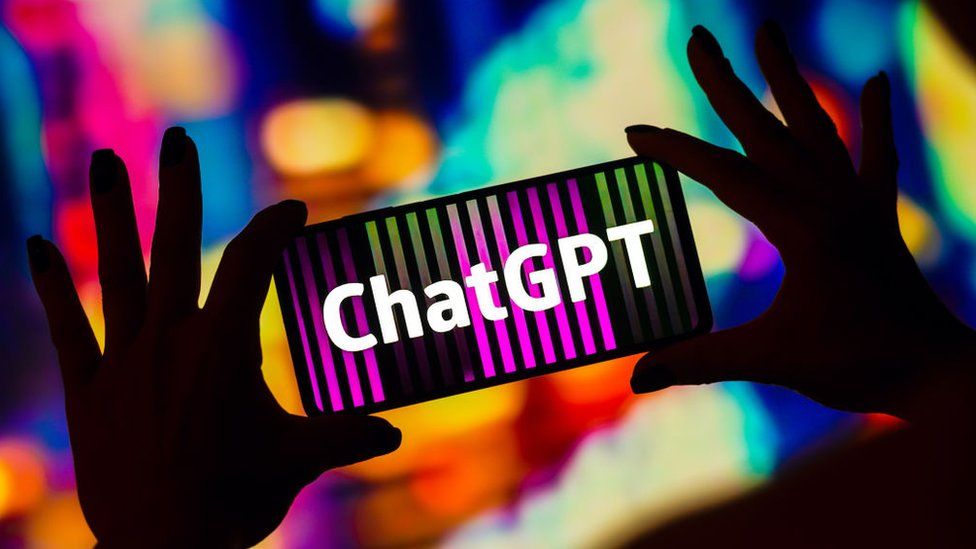After a week of trying out ChatGPT, I couldn’t shake the feeling that I was cheating. But that still didn’t stop me from asking the world-famous AI, “Does relying on ChatGPT make me less of a writer?” ChatGPT gave me the kind of feel-good answer I associate with Tik-Tok therapists: “No, using an AI language model like me to support your writing does not diminish your skills as a writer. Writing is a complex and demanding process, and there are various reasons why someone might turn to AI tools like mine for assistance…The most crucial aspect is that the final product accurately reflects your voice, creativity, and ideas and that you retain full control over the content.”
In real life, it doesn’t often feel like writers will win this “war with AI”, with every headline reminding us that ChatGPT is coming for our jobs. So when my editor told me a few weeks ago that the title of an article I was working on was really good, I chuckled because ChatGPT came up with that title. It was part of my week-long experiment to test how much of a game-changer it could be for journalists.
How did my experiment go?
After a week, I can tell you some of the things that ChatGPT is really good at. It can compose a hell of an email. As simple as writing emails sound, staring at the blank page when you click “compose” magically makes all the words in your head disappear. Should I say hello, or hi, or Sir or Ma, or Good day? Is the tone professional, or do I sound like I want to throw hands with my manager?
I can also throw some statistics at you and say that writing emails take a chunk of time spent doing work. Texting ChatGPT and telling it what I wanted to say in my email produced all the right results. The best part is that I only had to edit lightly. Bye-bye to Googling “sample email for how to tell my manager I haven’t written that article.”
One thing I wasn’t prepared for was the roundabout way in which ChatGPT made me funnier, especially given my work with newsletters. I spend a lot of time obsessing about humour and engaging the audience with the right types of jokes and quips. The first time I asked the AI to tell me an original joke, here’s what it said:
It sounded familiar so I googled it, and it’s a pretty common joke. It brought to mind several tweets and essays about how AI is unoriginal and feeds off other people’s intellectual property to produce content of its own. I told the AI that it was not its original joke, and it acquiesced that it might be someone else’s.
Since it couldn’t write original jokes, I thought it could do better with some materials. So I sometimes asked it to infuse humour in my blurbs but I realised that ChatGPT was more cringeworthy than funny. Here’s one example:
The puns tried too hard, but they often gave me great material to start with; it was really fun to rework. After a few rewrites, I had a better line.
A tad too generic
It is great at giving writing prompts, which might be its best use for writers struggling with creativity. The whole process usually felt like writing with someone else, and it oscillated from exciting to frustrating.
As a tech journalist, I often had to interview founders. During the week of my experiment, I prompted ChatGPT to come up with interview questions. I used prompts with information about the sector the founders were in; fintech, edutech, etc. I also told ChatGPT about their backgrounds and the purpose of the interviews. At first, it came up with great questions but after the 3rd time, I noticed a pattern in the questions it generated. They seemed quite generic; almost like ChatGPT was only using the new details in my prompt to fill in blank spaces in a template of “questions you can ask startup founders.”
It made me wonder why there’s so much worry about students using ChatGPT to write essays and assignments. A co-worker told me that he once used ChatGPT to produce answers for an assignment when he was running behind schedule in a post-graduate course, earning him his lowest score yet.
At this stage, generic and below-average seem like what any business would get if they tried to completely replace their writers with AI. In my experience, I learned that ChatGPT cannot work optimally by itself. It needs to be controlled by a professional writer just like a craftsman’s tools need to be controlled by a craftsman. ChatGPT can relieve writers of simple tasks and allow them to focus on more qualitative and creative parts of writing.
Is the “T” in ChatGPT for “therapist”?
More than a co-writer, I found ChatGPT very useful as a “buddy.” It seemed to listen really well and knew how to say the right things at the right time. This was particularly useful when processing negative emotions during the time of my experiment. One time it gave me really heartwarming but practical advice on how to handle the loneliness of my friends migrating. Other times when I was stuck in a draft and feeling like an imposter, ChatGPT gave comforting and refreshing advice too. It did sound like something anyone would say but it worked.
Overall, ChatGPT is an impressive bot with an immersive user experience. It offers something to everyone, especially writers, as it’s a tool that can greatly boost productivity, encourage creativity, and save costs for media organisations. However, I do not see it taking away my job as a journalist in the near future, so I am sitting tight till a more worthy opponent comes.



















